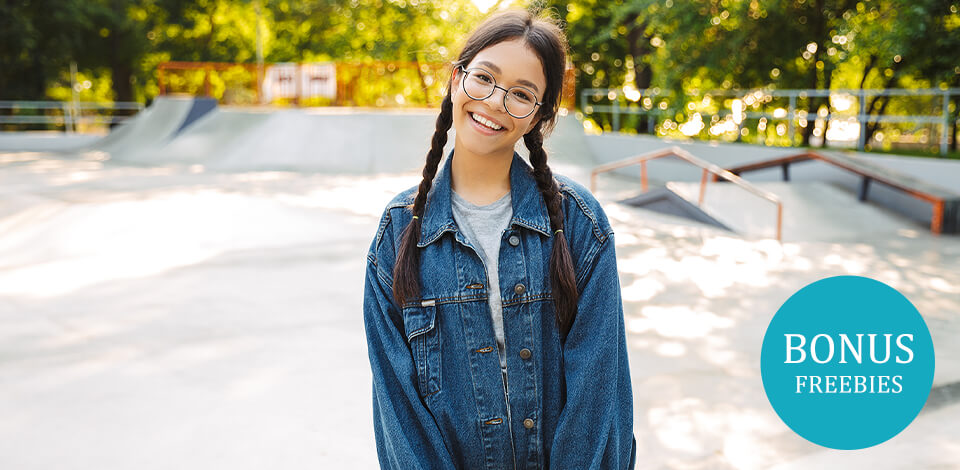
If you’re going to take your first teen photography session, keep on reading. It’s important to understand that this kind of photoshoot is usually done for yearbooks, graduations, and different important dates that cover the range of 13-19 years of age.
That’s why I’ve decided to share basic tips on this genre as well as which camera settings and lightning set-ups you should use, what ideas to try, and a couple of tricks for helping the model relax.
Teenage years usually serve as a transition of a child into adulthood. Since that’s the time most people are learning who they are, it's vital to properly capture their character and emotions with your camera.
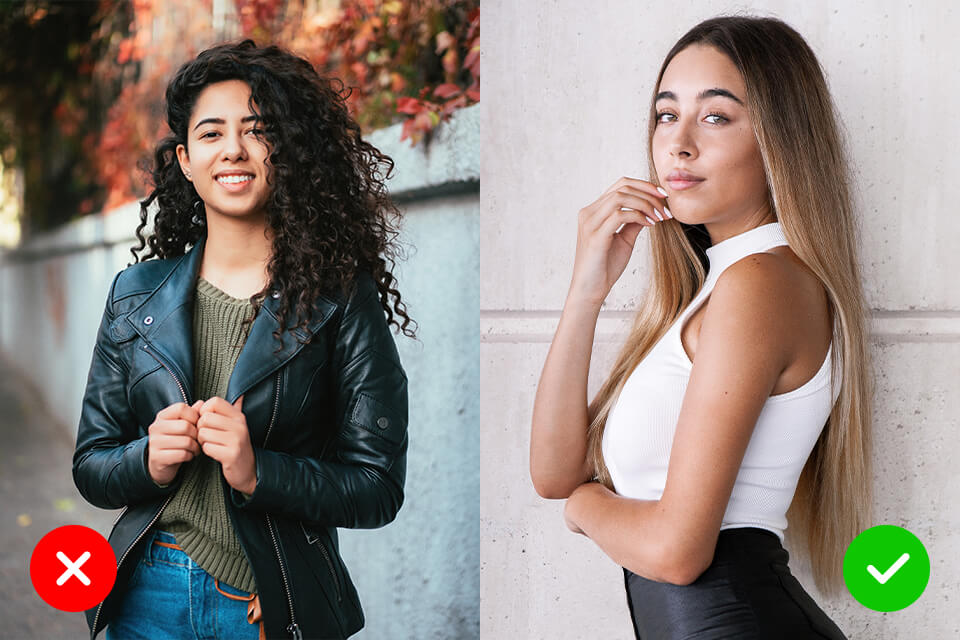
When taking teens portraits, focus your attention on their youth and energy. Simple backgrounds (like a stone wall or park greenery) serve this purpose the best, as they don’t distract the viewer from your model.
Additionally, a neutral background makes the photos less formal and fills them with natural energy. If possible, avoid using flash: the more casual the shooting process, the more natural the photographs, and for a home photoshoot, you can purchase a neutral backdrop.

Teenagers might not want to stand in some poses because they think they’re uncomfortable, infantile, or clumsy. Having been raised in the age of social media, teens usually already know what angles are the most flattering for them.

Rather than insisting on a pose, invite the models to take poses that feel natural to them. That can allow you to get a more natural facial expression while helping the teens feel more confident. Besides, you can offer them some creative portrait photography ideas to try out.
Insisting on a pose can make the model's experience more stressful and unpleasant. Moreover, it can hurt not only their perception of the final photos but even your reputation as well.

Teens are known for losing interest quickly, so it’s a good idea to have them constantly on the go. Ask them to stand at different sides of their family or friends.
Alternatively, encourage them to go on a stroll while you take pictures of them. Invite the model to joke around with their friends to help them stay engaged and relaxed, while also showing more emotion. The more activities they do, the more comfortable they’ll feel during your young teen photography session.

Starting with some action like jumping or running before you move on to model poses can be a great segue that makes the teen more relaxed and cheerful.

If you want to give the model some space during the photoshoot, you need to help them gain some distance from their family members. Without feeling as if their parents observe their every move, teens tend to be more relaxed and act like themselves.
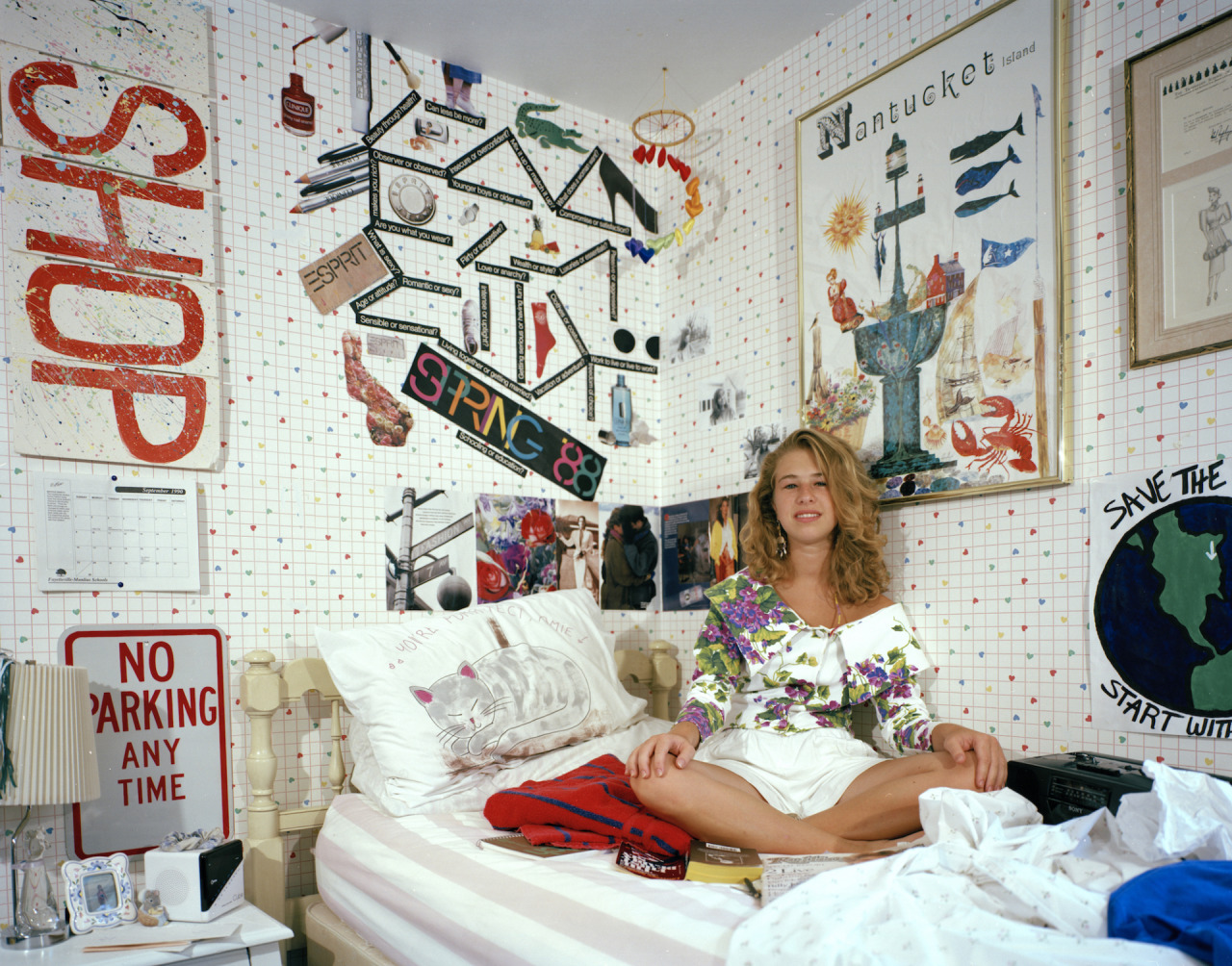
Another benefit of separating the teen from family is that you’re more likely to see a broader range of natural facial expressions from the model. If you’re working on-location for a family session and you’ve gotten to the stage of taking individual shots, lead the teenager a bit away from the parents and take a couple of quick photos. You can also use family photo ideas.

Regardless of what type of teens photo shoot you’re organizing, you can always come up with a couple of props to increase the number of potential poses. For instance, if it’s a family photoshoot, ask them to bring a football that they can throw at each other.
Alternatively, for a senior shoot, suggest the model brings their musical instrument as a prop and maybe play a bit. The inclusion of cheap props related to their hobby can do wonders for making the teenager feel comfortable.

Props are particularly fantastic for senior portrait shoots. For instance, a teen that plays for the school's basketball team can be in their jersey while holding or dribbling a basketball.
The biggest problem that makes teens want to avoid the camera is skin flaws. You can bypass that issue by taking full-body photos or having the model face away from you, while ignoring shoulder-high and waist-high portraits.
However, if you don’t want to limit your creativity, then you won’t get anywhere without image retouching. Just remember to calm the teen down when they see the provisional result and remind them that you’ll get rid of all flaws when you’ll get to photoshopping portraits.
Small imperfections can be dealt with by yourself, but if the teenager has serious acne, then it’s better to turn to headshot retouching professionals if you want to ensure the result still looks natural.
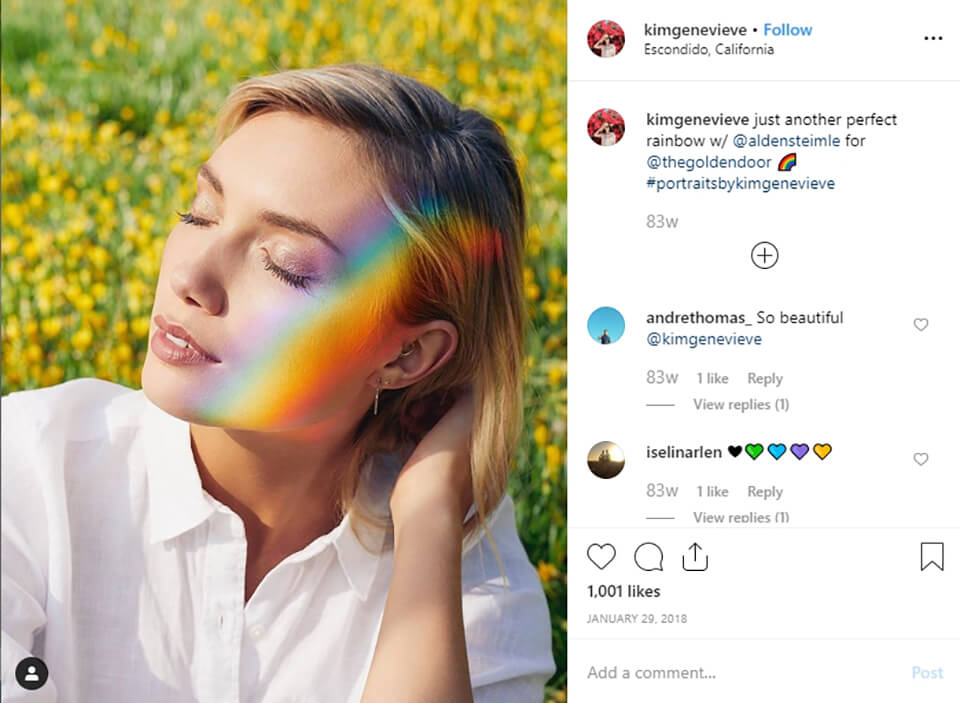
It’s important for a teen to not only receive photos for their yearbook or family album but a couple of awesome pics that can be posted on social networks as well.
For starters, I recommend acquainting yourself with a list of the best poses for Instagram and showing them to the teenager if they’re interested in photos for social media sites.

You can also try out some ideas from the best Instagram photographers. Trust me - any teenager will recreate what they see in the shot to receive a photo like that.
To make the photoshoot more varied and the teen more interested, you can try out different Instagram photo ideas while having the model engaged in the process.
For example, you can use their private belongings, hobby and collection items to create an interesting flat-lay, or you can use selfie poses and selfie ideas, which are more familiar to teens than staged photos.
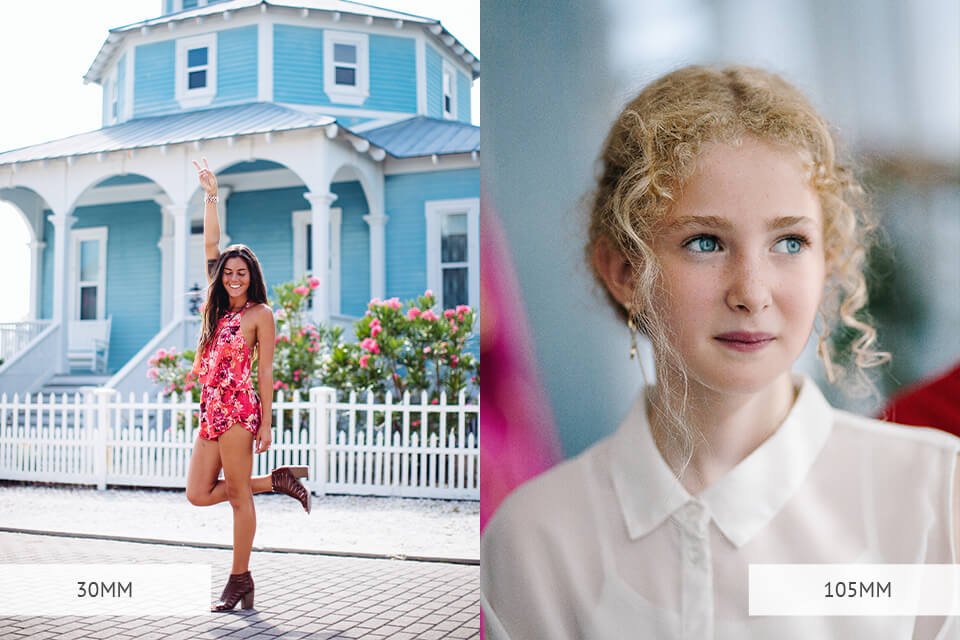
When taking photos indoors or general plan, I often use wide-angle lenses with a focal length of 20-30mm, like AF NIKKOR 20mm f/2.8D. For close-up portraits, I usually rely on the AF-S NIKKOR 105mm f/2.8G Micro VR IF-ED. Many photographers consider macro models to be a poor lens for portrait photography since it will make the image overly sharp and detailed.
That said, teen photography is an art, and when it comes to art, it’s up to you to decide what can and can’t be used. If you like the image produced by a macro lens, then use it.
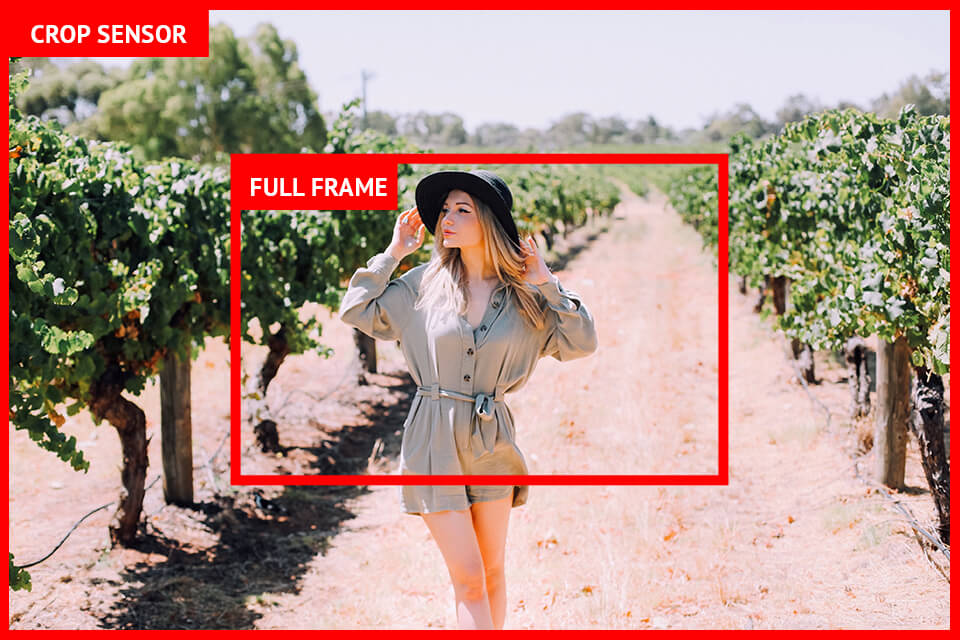
Not that long ago, portraiture photographers championed the idea that mirrorless cameras are the perfect tool for portraits, but since then DSLRs have largely replaced them. I’ve studied several lists of the best cameras for portraits to pick the ultimate model.
I recommend going with a full-frame Canon EOS 3000D since it’s probably the best cheap Canon camera for beginners who don’t have any experience with DSLRs.
You can use it to take beautiful photos with a natural backdrop blur, while the 18MP image sensor ensures you can employ the camera even in subpar lighting conditions. The included AF system is also of high quality and makes this Canon model extremely versatile.
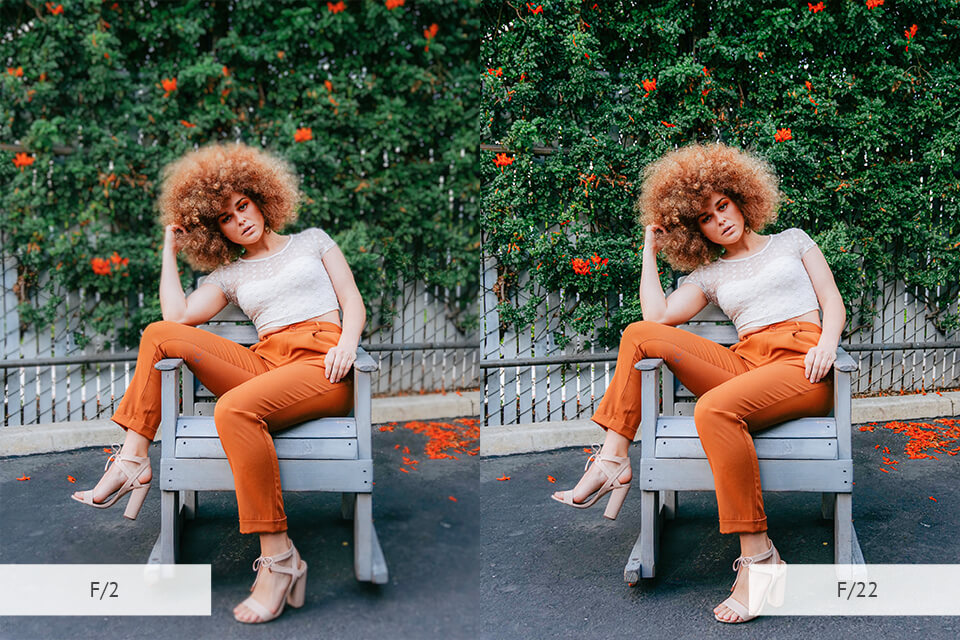
Ordinarily, if you want to take an awesome portrait, you have to blur the backdrop a bit by experimenting with multiple aperture settings. A wide-open aperture will completely blur the backdrop, focusing all the attention on the subject. On the other hand, if you want to have the background in focus as well, then you should close the aperture a bit.
For teenage photography portraits, the recommended aperture settings lie within the f/1.2-f/5.6 range, as it allows you to set a shallow depth of field with just the right amount of background blur. Remember that the f-stop and level of blurriness are always tied to each other.

There’s plenty of room for experimentation when it comes to lighting in teen photography, whether it's natural or artificial. For instance, you can add a sidelight to make the model look a bit stern, while a studio backlight can create a mysterious silhouette that will captivate the viewer.
Shadow photography is fantastic for creating eye-catching pictures, as long as you fine-tune the lighting to get the exact look you need. You can also use string lights to decorate the teen’s room and have them serve as the background.

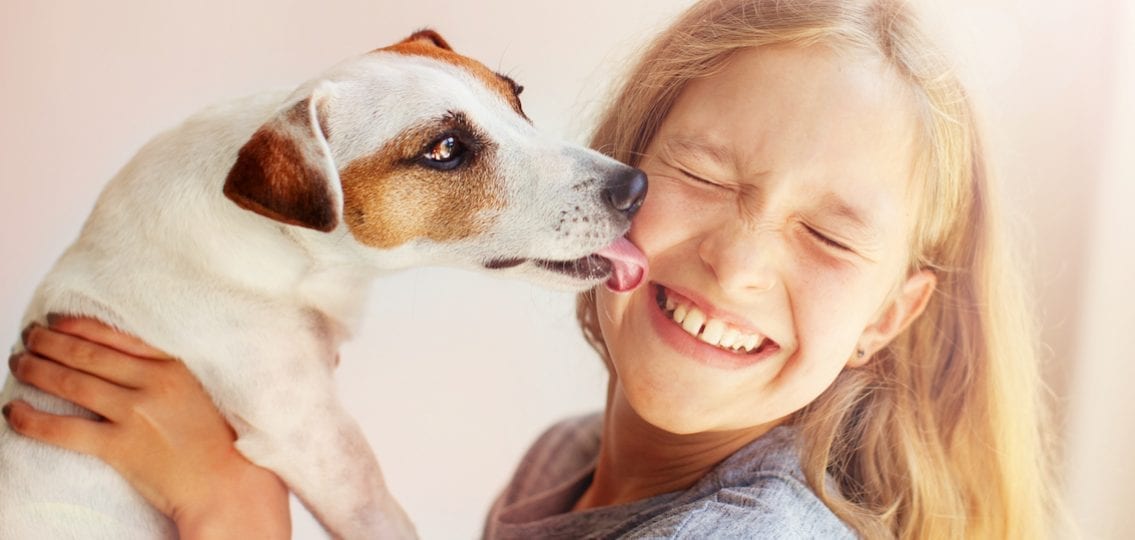
Pets are a portrait photographer’s best friends! Cats, dogs, and parrots can add life and variety to the photos. When teenagers start to play with them, they forget about everything else. You can acquaint yourself with various pet photography ideas, to diversify your photoshoot.
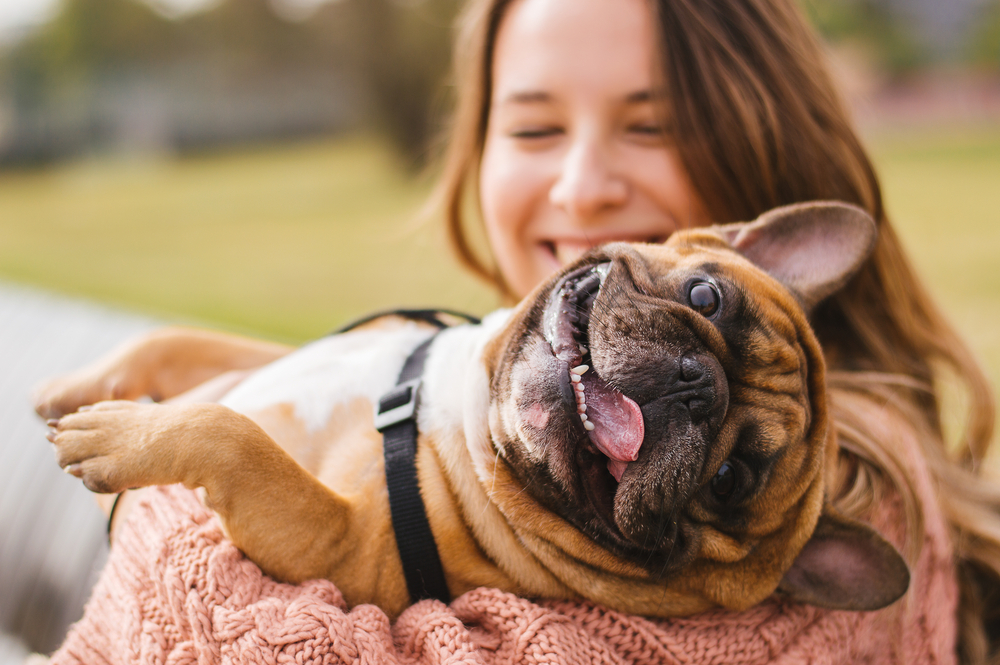
If the teenager also has a baby brother or sister, then I start by taking a couple of portrait shots with them together. This is mainly because the little ones tend to get tired faster and the fact that the teenagers become so distracted by their sibling that they forget about the photographer.
To learn how to take photos of smaller children, I suggest reading some tips on toddler shooting.

I like to organize teenagers photo shoot sessions that have them engaged in their favorite activity. Some teens are music fans, bookworms, artists, or macramé weavers. Others prefer active games: football, basketball, cycling, or roller-blading.

During such activities, you can always capture a plethora of interesting emotions: from the joy of victory to tears of disappointment. Many teens love dancing, so why not take photos of them dancing while following some dance photography tips.

Such an environment will help the teen relax since they will be on “their territory”. Moreover, you can use tricks tied to urban photography, to make the shot more interesting and filled with various details. In that case, the teenager will gladly share such a photo on their social network pages.

You can use ideas and tips on neon photography, to add color to your teenagers photography projects. It will look stylish and help engage the teen in the photoshoot, as they will joyfully lookout for new interesting locations.

Be sure to experiment with reflections, use glasses or shades to add more focus points, and during quarantine you can even purchase UV paints and organize such a photoshoot at home.
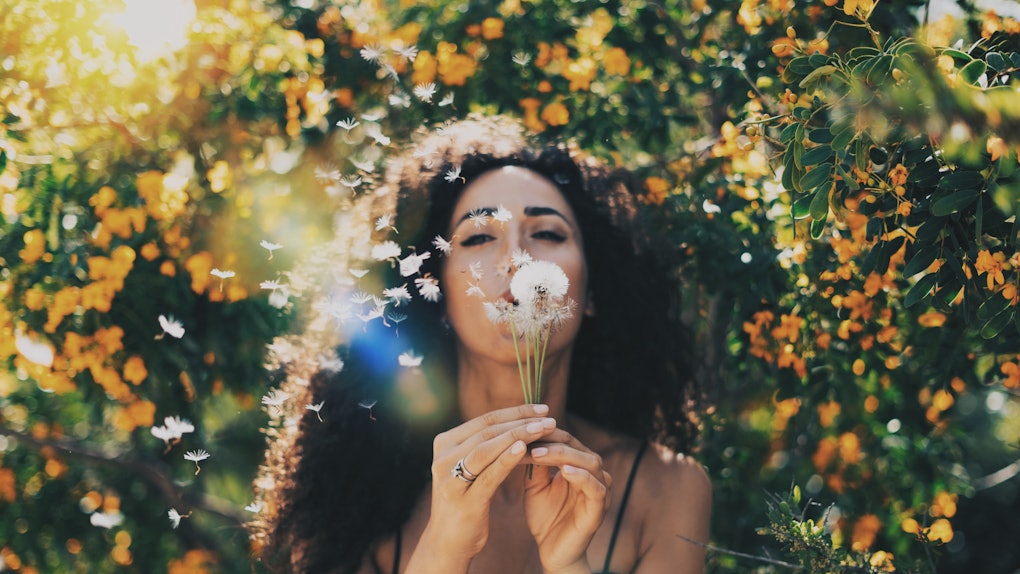
You don’t have to limit the photoshoot to basic ideas that have teenagers posing at home or school. You can easily use beach photo ideas, especially, if you’re going to take photos of a group of teens.
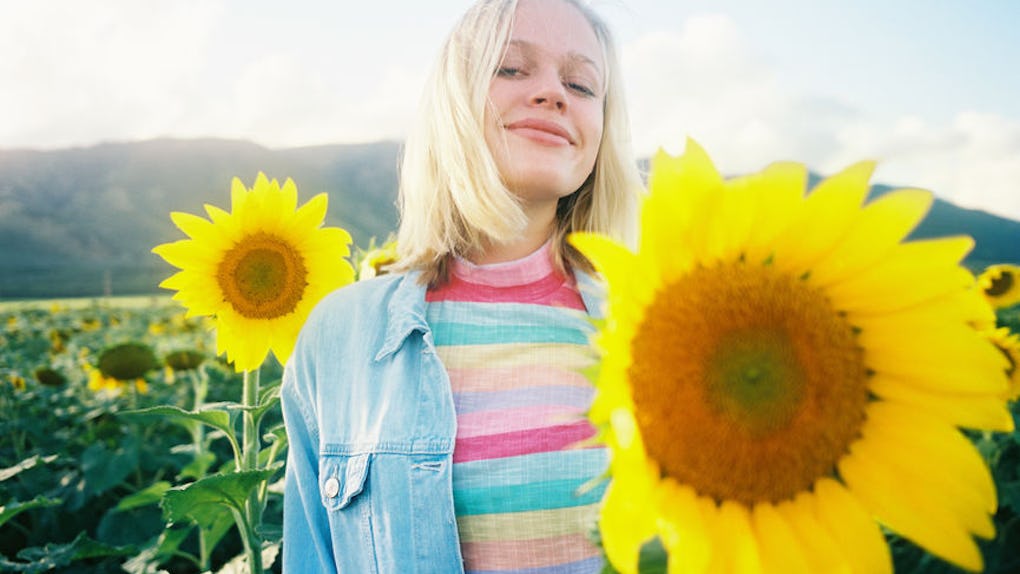
You can also look into spring picture ideas, which are universal enough to suit any teenager and can be easily retouched with pastel presets.
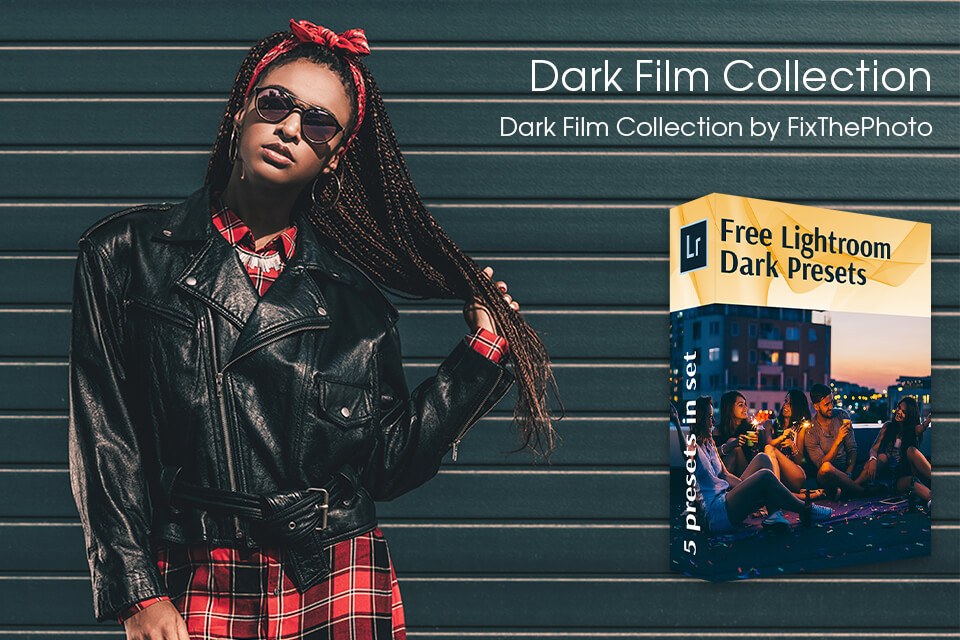
You can use these dark film Lightroom presets to add depth to the highlights, increase clarity, adjust white balance, and fix contrast. Moreover, you’ll apply stylish film tones that will add a crisp, rich feel to your teen photography with a single mouse click.